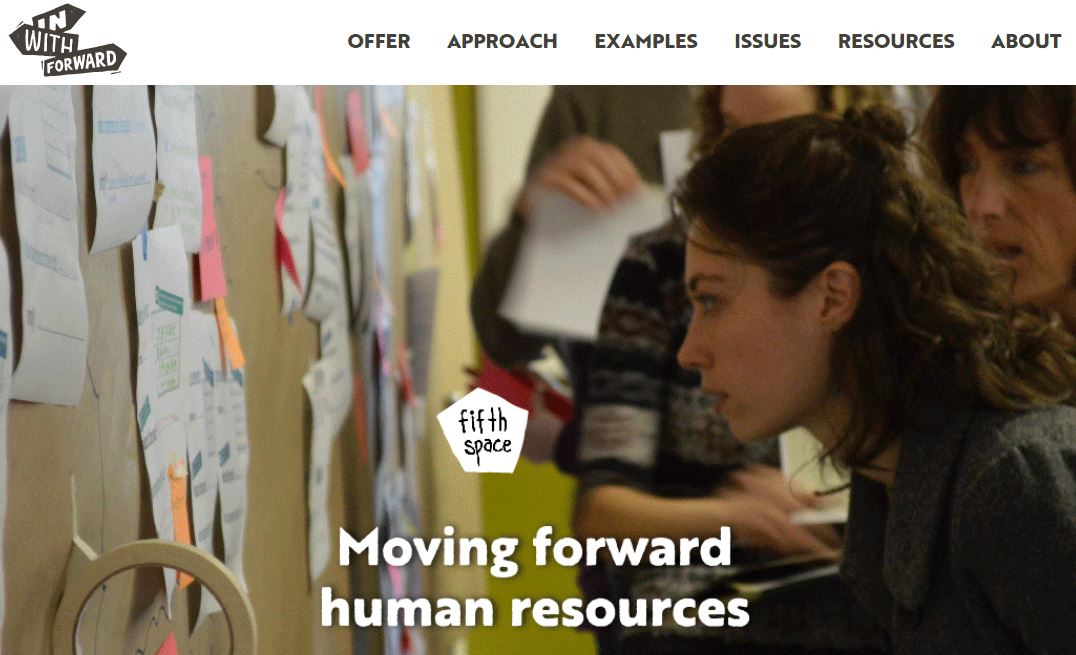
CommonSpace columnist and Common Weal director Robin McAlpine calls for a transformation of policy-making in Scotland
FOR the vast majority of people, the civil service is a total mystery. In as far as they know anything much about it, they will probably be dealing in an inaccurate concoction of out of date stereotypes and a handful of personal anecdotes.
So mostly the civil service manages to avoid being much of a subject of conversation in the world of public politics. Which is a real shame, because there’s a lot to talk about.
You may now be expecting a lengthy list of complaints. But that’s not at all the way I want to look at this. I have worked closely with the civil service as a whole and many individual civil servants going back 20 years now. And what I see is an untapped resource and a missed opportunity.
Mostly the civil service manages to avoid being much of a subject of conversation in the world of public politics. Which is a real shame, because there’s a lot to talk about.
It’s not that there aren’t complaints. There are loads. In fact, if you want a long list of complaints about the civil service, you should probably talk to a civil servant.
At the soft end of the problem there are some real duffers in the civil service. I mean, seriously, people who should just not be in their jobs. But hey, it’s a big institution. Show me a profession which does not have its fair share of duffers and hangers-on.
Most systematically, the culture of the civil service is an odd one. It often feels like the last hiding place of the British Empire state of mind, where a chosen class of person has a duty to save the commoner from themselves. The poor things are so foolish (referring both to politicians and the public).
But that culture is changing slowly. It has probably morphed more into a kind of deep-dyed risk aversion; the civil service sees ghosts and goblins under every bed. That too can change.
At the really problematic end is commercial collusion. The Thatcher revolution, nailed home by the Blair/Brown PFI scandal, has created a closeness between parts of the civil service and large commercial interests which is at best corrosive and against the public interest, and at worst looks to me like genuine corruption.
Over the 20 years I’ve known it, I’ve met as many really good civil servants as really bad ones. In fact, almost certainly more. I’ve seen clever, creative thinking, innovation, radicalism even.
For example, what really is the fundamental difference between knowing that on early retirement you’re going to get a lucrative non-executive director gig in a big company that has benefited from decisions you’ve made, and just taking the money in a brown paper envelope instead?
The ‘revolving door’ where commercial interests helpfully ‘loan’ their staff to the civil service to write the policies regulating those commercial interests is an absolute outrage.
All this is true, and all of it should be changed. But I fear it obscures the real potential inside our civil service.
Because over the 20 years I’ve known it, I’ve met as many really good civil servants as really bad ones. In fact, almost certainly more. I’ve seen clever, creative thinking, innovation, radicalism even.
The ‘Sir Humphrey’ model in which civil servants try to stymie the idealism of politicians happens – but I can think of probably more cases where a nervous politician put a red line through a radical and idealistic proposal from a civil servant.
It has also been my experience that the level of frustration felt by a civil servant is generally in direct proportion to how good they are; the time-servers seem content by comparison.
(I am told reliably that the 2014 White Paper on independence was a much more radical and innovative document in its pre-ministerial intervention drafts…)
It has also been my experience that the level of frustration felt by a civil servant is generally in direct proportion to how good they are; the time-servers seem content by comparison.
For quite a long time now I’ve felt that if only the civil service could somehow be tilted just a bit more in favour of the frustrated talent and away from complacent mediocrity, the impact could be enormous.
But this is always ducked. Partly because, while undue commercial influence gets a free pass, there is a phobia about ‘political interference’ in the civil service. It tends to get reforming politicians branded as tin-pot dictators.
It’s also because of the sheer size and complexity of the thing, and the universal problem of trying to change the culture of an organisation (which can be akin to trying to change the weather).
I think there is a bold solution we could consider in Scotland. It became my conclusion when I thought hard about what the real root of the problem is.
However, I think there is a bold solution we could consider in Scotland. It became my conclusion when I thought hard about what the real root of the problem is.
For me, the fundamental problem is that the civil service is two things at once – it is a thinking body and it is a doing body. Unfortunately, there is a conflict of interests between these tasks.
The thinking part wants to analyse a situation, diagnose the problems and come up with solutions. Which is to say, the thinking part wants things to change.
Then it meets the doing part. The doing part wants things completed with the minimum fuss. Simple implementation of minor changes, preferably reducing activity rather than increasing it.
In short, overall it thinks in terms of change but acts in terms of stasis. And here’s the real failure – because it takes place in a more-or-less closed room, all we see is the muddy compromise. We see the ’16-point strategy document’ which no-one thinks will change anything. We don’t see points 17, 18 and 19 which could have made a real difference but were ruled out early on as being ‘too much work’.
Separate the head from the hand, let the process of compromise be seen in the open and then let us all debate it.
Now, I’m not arguing against the discipline of sensible implementation; big ideas mean nothing if they can’t be made to work. Big ideas always hit reality and some compromise is necessary. But it is not healthy if this means the big idea is always hidden away, that we never get to see what we could have won.
I think there is a simple solution – separate the head from the hand, let the process of compromise be seen in the open and then let us all debate it.
The civil service is a reserved policy function, so major changes in Scotland alone are technically difficult or impossible. But the civil service is constantly seconding people to other organisations to get ‘real world experience’. So let’s use that power.
Let’s set up national policy academies. These would be big, open, transparent, public centres of thinking. Each would be attached to a university (perhaps democracy and participation at Edinburgh University, regional economy at Glasgow, rural policy in Stirling, poverty and inclusion at Caley, housing and town planning at Glasgow School of Art, energy at Aberdeen).
Then the policy development civil servants (the ones devising the policies) would be seconded to these academies. A balance of secondments from other organisations could be made – campaigners, practitioners and so on. Together they would work with academics to form big public ‘think tanks’.
Everyone would be able to see the development process – the ideas proposed, the ideas rejected.
When a minister wants a policy developed, rather than dropping the instruction into the closed box which is the civil service, it would commission the policy from an academy. Everyone would be able to see the development process – the ideas proposed, the ideas rejected.
And everyone could feed in their own ideas, right from the beginning. You know, harnessing the nation’s intellectual capital. At the end of the process, a report (possibly with multiple options) would be sent back to the minister. In public. It would then be for the minister to choose. In public.
And then the outcome would be given to the other part of the civil service to implement. The implementation arm of the civil service would already have been able to shape the policy development stage (as would anyone else who wanted to) but would now have to be transparent about which further compromises it felt was necessary to make the policy work.
We’d open up government. We’d open up intellectual resources not being adequately used. We’d create long-term centres of excellence in public thinking. We’d unleash the creativity of the best of the civil service. We’d create a legacy of ideas not adopted, paths not taken. We would always be able to come back to them in the future.
I only have to think of my last few weeks to get a sense of what this could mean. In a number of separate events I’ve met civil servants working on open government, participatory democracy, economic development, infrastructure investment, local government, poverty and more.
Let’s create an ‘infrastructure of thinking’ in Scotland which can replace the ‘infrastructure of managing’ which 40 years of managerial government has put in place.
For the most part, they all want to do something real and meaningful. In most cases they are more than capable of doing that (and in some cases there is real, genuine first-rate talent). But there is always a frustration, a self-censoring belief that their best ideas ‘won’t happen anyway’.
Let’s set them free. Let’s create an ‘infrastructure of thinking’ in Scotland which can replace the ‘infrastructure of managing’ which 40 years of managerial government has put in place.
Nothing frustrates me more than seeing good, creative, talented people frustrated. Let’s create a place where they can drive us forward, not just keep us ticking over.
Picture courtesy of Documenting Yes
To learn more, please visit: CommonSpace






